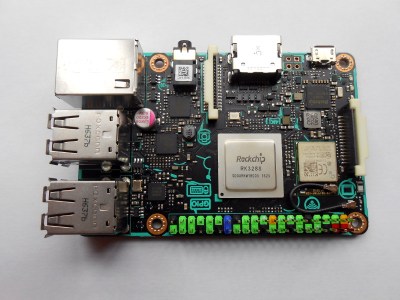The Asus Tinker Board is one of the quiet achievers of the powerful single board computer market. A Raspberry Pi form factor with a significantly more powerful processor, more memory, faster networking, and Asus build quality. In hardware terms it leaves many of the other Pi competitors in the dust. If the Tinker Board has a problem though it is the same one that affects so many otherwise promising offerings, that its software support isn’t as strong as the fruity computer from Cambridge. When you buy a Pi it’s Raspbian that makes it a wise purchase, along with the huge community support that surrounds it.
An interesting development on that front comes courtesy of [Justin], who tells us that the sources have been released for the Tinkerboard flavour of Android. The community have put in the work on the board’s Linux distro, but the Android side hasn’t had the same opportunity. This step makes the Tinker Board a significantly more interesting choice for custom Android development, as unlike some of its competitors for which only precompiled builds are available it puts a bespoke Android build in the hands of its developers.
We like the Tinker Board here at Hackaday. We first reviewed it when the boards became available, but later found that they had reached the market in error before Asus had a stable operating system. We therefore returned with another review six months later, and found it to be a credible Raspberry Pi alternative saved by its band of enthusiasts who have filled in for any of its software shortcomings.














